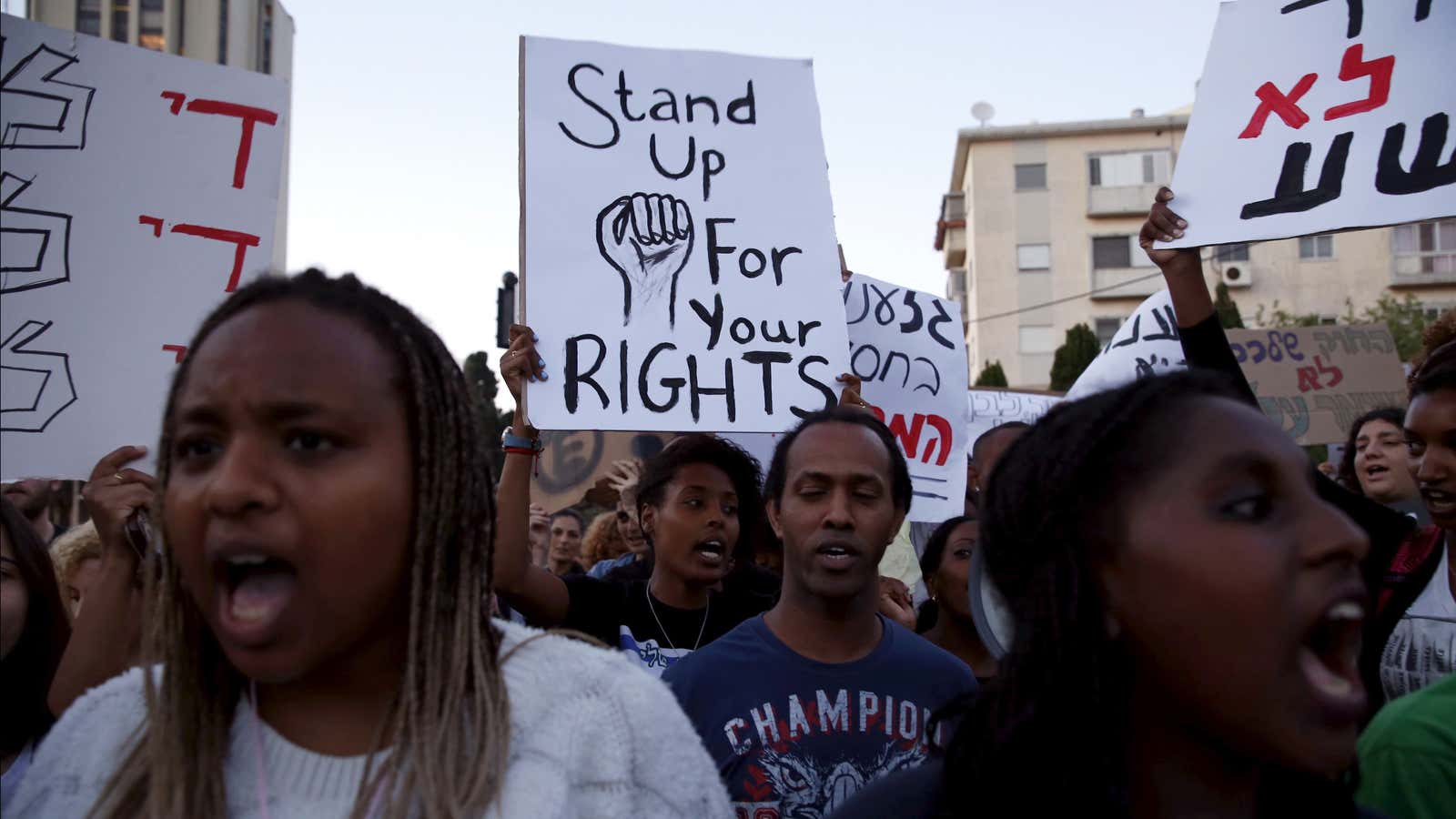The killing of Solomon Tekah, a 19 year-old Ethiopian-Israeli man, by an off-duty police officer has ignited a new wave of demonstrations against police brutality in Israel and drawn comparisons with the United States’ “Ferguson” tipping point.
The protests highlight the local Ethiopian community’s decades-long grievances against racial discrimination in Israel. Demonstrations against the Tekah shooting have turned violent with Molotov cocktails thrown, cars torched, hundreds arrested, and according to reports, nearly 110 police officers were also wounded.
The latest wave of demonstrations comes on the heels of a police shooting earlier this year, where protestors blocked major roads in Tel Aviv and got in violent clashes with police.
The outcry in Israel following police shooting of young black men has been compared with 2014’s “Black Lives Matter” demonstrations in US cities against the police shootings of unarmed black men. The parallels are a “fair comparison to what is happening in the States,” said Mazal Bisawer, the spokeswoman for the Association of Ethiopian Jews, a Ethiopian-Israeli advocacy organization based in Jerusalem.
According to local reports, the police officer involved in the Tekah shooting is likely to be charged with negligent homicide. Bisawer, who believes there was no justification for the shooting, says the community now only waits for the finalization of the investigation.
“The dream of Israel is broken to us,” she said
Even though Ethiopian Jews were initially welcomed to Israel in the early 1980s, there has been growing tension between the community and Israeli authorities, which is often accused of treating Ethiopian-Israelis as second-class citizens.
The Ethiopian-Israelis first major protests against racial discrimination dates back to a 1996 scandal, when it was revealed Israeli officials secretly disposed blood donated by Ethiopian-Israelis for fears it might be contaminated with HIV. After the revelations, the community clashed with police around the country.
Nearly two decades later, a 2015 viral video showing two Israeli police officers beating Damas Pakada, an Ethiopian-Israeli soldier, set off another wave of mass protests in Tel Aviv, and shone a spotlight on police brutality as a national issue. It even pushed the government to set up a committee to eliminate racism, which found disproportionate arrests of Ethiopian youth by Israeli police and incidents of discrimination, including in the government.
But some Israelis, including the Benjamin Netanyahu’s son, have started to question whether the protests are an organic movement or the influence of foreign governments and anti-Israel groups.
Sign up to the Quartz Africa Weekly Brief here for news and analysis on African business, tech and innovation in your inbox
